

Hemp vs CBD
The cannabis industry is quickly taking shape globally due to the increasing popularity and demand for wellness products. Some of the most common terms that are often repeated in the industry are “hemp” and “CBD”; they can be confusing as they represent diverse aspects of the cannabis realm.
This article provides a clear comparison between hemp and CBD, so read on to learn more about each of them beyond their common differences.
Understanding Hemp and CBD
Hemp is a plant species of the cannabis sativa family that is grown for commercial use. But unlike its closest plant type, marijuana, hemp has lower levels of CBD, so it lacks the stony effect present in marijuana.
Instead, the hemp plant is widely known for its multiple applications in the nutrition, construction, paper, and textile industries.
CBD, on the other hand, is short for cannabidiol, which is one of the several compounds that are derived from the hemp plant besides THC. But unlike THC, cannabidiol has no euphoric or intoxicating effect. Instead, it is known for different therapeutic properties that ensure overall wellness when consumed by humans.
Why not also read: CBD vs CBG
CBD is first extracted from the hemp plant through different processes to achieve these effects, but the most common is the C02 extraction. This process ensures the CBD extract is cleanly removed from the hemp flowers and buds before conversion into CBD oil, which bears different therapeutic properties.
The CBD oil can then be infused into multiple products to enhance usability. When either of these is consumed, the CBD extract is released into the bloodstream, interacting with the cannabinoid receptors across the body. Their reaction regulates physiological processes, from sleep, mood, anxiety and stress to pain management.
However, the onset of any CBD user's effects varies depending on different factors, from body composition to CBD concentration in the relative products.
Hemp Based Products and CBD Based Products
Although CBD is a product of hemp plants, hemp showcases its versatile applications across different industries. But most of these are in the nutritional and wellness industries. In the nutritional sector, where everyone supposedly admires taking different nutrition supplements, hemp is widely known for hemp seeds and hemp seed oils.
These are sources of essential body nutrients such as omega-6 and omega-3 fatty acids, as well as proteins, vitamins and minerals. Unlike CBD, which is famous for its multiple therapeutic properties, hemp is valued for its positive impact on nutrition and adaptability in food and recipe applications.
CBD-based products feature a variety of options identified as most preferred for delivering CBD extract into the body without affecting the consumers' routines. These products come in different types, each containing varying CBD concentrations designed for specific benefits.
The common types of CBD products include;
CBD oil is a versatile form of CBD and is administered sublingually, below the tongue. However, consumers of the product can also blend it in their beverages and other meals for a precise dosage. However, sublingual consumption offers the fastest absorption of CBD.
CBD capsules, which are taken orally and are convenient for precise dosing. CBD edibles are food products infused with cannabidiol extract, offering a tasty way to consume CBD. Other products are CBD topicals for skin application, drinks for tasty convenience, and vapes for fast-acting and fun-filled CBD delivery.
Potential Wellness Benefits
The most common factor that brings about confusion between hemp and CBD is their oil feature. With both hemp and CBD being products of the cannabis plant, it is important to understand how different CBD oils are from hemp oils.
Why not also read: CBD vs CBDA
This is because CBD and hemp seed oils can be identified as highly beneficial for various applications, from the beauty industry to the food industry.
Hemp seed oil is a product of the hemp seeds, while CBD oil is a product of hemp plant flowers, buds, leaves and stalks.
What is Hemp Seed Oil?
Hemp seed oil is extracted from hemp seeds and contains robust flavours of polyunsaturated fatty acids in huge percentages.
However, according to a report from Oklahoma State University, despite hemp seed oil being sourced from hemp seeds, the processes involved in the handling of the seeds may lead to THC and CBD oil presence in the hemp seed oil.
After the above report on delta-9-tetrahydrocannabinol (THC) presence, Forbes explains that most companies in the production of hemp seed oil have to adhere to strict rules. This ensures their final hemp seed oil has less than 0.2% THC (if in the UK) and 0.3%(if in the US).
To extract it from the hemp plant seeds, the hemp seed oil is cold pressed without heat, and then the oil is collected and stored in cool and dark places, ready for shipping and processing.
Hemp Seed Oil Uses
You can use hemp seed oil for all your salad preparation procedures or add it to your recipes as it adds a unique and tasty flavour, especially on vegetables.
Its composition of the omega-3 and omega-6 fatty acids makes it an essential nutritious supplement. You can consume the hemp seed oil directly to ingest the nutrients, as the American Oil Chemist Society states.
Hemp seed oil also plays key roles in various industries, including the manufacture of varnish, paints, and plastic flooring due to its fast drying properties.
Hemp seed oil also features a great nutritional profile that includes multiple nutrients besides omega intake. These include Sulphur, potassium, phosphorous, magnesium, zinc, chlorophyll and essential antioxidants such as Vitamin E.
Risks of Hemp Seed Oil
Despite the great benefits and huge applications of hemp seed oil, what you never know is that the oil is hard to store. This is because it can easily decompose when exposed to air, light and heat. So, for a beneficial intake, it is best to consume the hemp seed oil raw when it is still fresh.
Why not also read: HHC vs CBD
Unfortunately, the hemp seed oil may not be as good as you would expect for frying. This is because in the oil are unsaturated fatty acids that are easily oxidated or broken down at high temperatures, leading to unexpected off-flavours and potentially harmful compounds.
What Is CBD Oil?
CBD is an abundant compound in hemp plants, and its oil form is extracted from the flowers, leaves and stalks of the hemp plant. The extraction procedure involves using carbon dioxide to ensure a high cannabinoid profile in the oil extract.
However, different carrier oils such as almond oil, vegetable oil, olive oil, and sunflower oil are added during the processing of the oil extract. The carrier oils are intended to enhance the bioavailability of the CBD extract while also improving its flavour from the bitter, earthy taste.
Some carrier oils are also important in ensuring a stable shelf life of the CBD content. They act as a protection to preserve CBD’s purity and efficacy.
Sometimes, while adding the carrier oils to your CBD, as soon as the manufacturers attain the desired potency, they can add in other ingredients depending on the requirements for the CBD. These additional ingredients could be substances like jojoba oil or rose hip seed oil. These are essential for addressing the users' skin hydration or any other inflammation needs.
CBD Oil Uses
You may use CBD oil for different needs, from improving sleep to managing pain and anxiety. The oil is also essential for different pet and beauty products. However, more information is yet to be found about CBD oils since its users claim to have seen different benefits after using the oil.
Risks of CBD oil
CBD oil acts differently in every individual's body. This means there is a high risk of excess consumption trying to achieve specific benefits as seen in someone else. A fact that the FDA warns of having dire consequences.
The different side effects said to have resulted from CBD use include possible liver injuries, changes in mood and irritability, and drowsiness when taken with alcohol or any brain-slowing drugs. Others include decreased appetite, diarrhoea, and negative interactions with drugs.
While research is ongoing to understand CBD effects better, experts advise that it is important to get your CBD oil from reputable sources. This will save you from low-quality CBD products that may have effects on your well-being.
You also want to think about consulting a health specialist before using CBD oil, especially for a need that you had mentioned elsewhere.
Is Hemp Seed Oil Better than CBD Oil?
Whichever is better between the hemp seed oil and CBD oil depends on what you plan to use the relevant oil for. CBD oil and hemp seed oil both have different properties that stand out in their area of application.
The hemp seed oil is good for nutritional benefits, while the CBD oil is the best for therapeutic and overall wellness concerns.
In matters of legality, hemp seed oil is widely available and legal. However, CBD oil has varying restrictions depending on the available THC content. This may affect the open availability of CBD, especially in restricted regions.
Misconceptions About Hemp and CBD
The evolving needs and benefits of hemp and CBD may lead to misinformation on important aspects of the products. So, to guide your purchase and usage decisions, here are clarifications of some common myths and misconceptions you may have heard about hemp and CBD.
CBD Gets You High
CBD lacks the intoxicating effect that is present in THC, so it won’t get you “high”. Moreover, different governments have regulations on the limit of THC presence in any CBD product, so using them won’t leave you with a “high” feeling.
Hemp and Marijuana are the Same
While hemp and marijuana are both products of Cannabis sativa, they are from different varieties. Hemp is cultivated for several industrial purposes and has a lower THC level. Marijuana is cultivated for its high THC levels, most especially for its psychoactive effect.
All Hemp Products are Legal Everywhere
While hemp products derived from hemp are legal in most places, you must be cautious when moving around in different regions. This is because some regions have restricted CBD and THC rules. So you may get entangled in violated laws because of failing to confirm the CBD and hemp-derived products' legality in specific states.
CBD is a Cure for All
CBD has shown tremendous benefits in various conditions, but it is certainly not a cure for all. Firstly, there is a lot of pending information about it; then there is the issue of varied effects on different people. So, using CBD may not always have the same response you expected.
CBD Works Instantaneously
CBD’s effects vary based on factors such as dosage, metabolism, and CBD concentration. This is why, while some people experience immediate effects, others may get the same much later.
FAQs
Can you use hemp seed oil and CBD oil together?
Yes, you can use both hemp seed and CBD oils together since they complement each other. Hemp seed oil will give you nutrition benefits, while CBD will deliver therapeutic benefits. It is, however, good that you seek advice from a health specialist in case you are unsure about anything concerning CBD and hemp seed nutritious uses.
Can CBD make you fail a drug test?
Broad spectrum and CBD isolates may not make you fail a drug test because they have no THC in them. Full-spectrum CBD can make you fail the drug test because of the present trace amounts of THC in it.
Can Hemp get you high?
No, hemp can’t get you high because it has lower THC content. This means low to zero psychoactive effects.
Do hemp and CBD have the same effects?
No, hemp and CBD don’t have the same effects. Each of these has a different compound composition, so they can’t have the same effects.
In conclusion, hemp and CBD serve distinct roles and offer unique applications. Hemp has a rich nutritional profile, while CBD takes centre stage in health and wellness for its therapeutic properties. With their varying composition, the ultimate choice of whether hemp or CBD depends on your needs.
-

-
In stockOriginal price £25.00 - Original price £139.99Original price £0.00£25.00 - £139.99£25.00 - £139.99Current price £25.00
Earn 312 reward points
Orange County CBDBrought to you straight from the Sunshine State, Orange County's CBD oil combines full-spectrum, premium cannabinoids with natural terpenes to brin...
View full detailsOriginal price £25.00 - Original price £139.99Original price £0.00£25.00 - £139.99£25.00 - £139.99Current price £25.00Earn 312 reward points
-
Low stockOriginal price £19.99 - Original price £100.00Original price £0.00£19.99 - £100.00£19.99 - £100.00Current price £19.99
Earn 250 reward points
CBD by British CannabisIntroducing the new CBD Cannabis Oil from CBD by British Cannabis. This 100% Cannabis oil has been developed to be the best tasting most premium CB...
View full detailsOriginal price £19.99 - Original price £100.00Original price £0.00£19.99 - £100.00£19.99 - £100.00Current price £19.99Earn 250 reward points
-
In stockOriginal price £25.00 - Original price £25.00Original price £0.00£25.00£25.00 - £25.00Current price £25.00
Earn 312 reward points
CBD FXExperience the natural benefits of CBDfx Hemp Tincture, crafted with high-quality, pure hemp-derived CBD and MCT oil for optimum absorption and e...
View full detailsOriginal price £25.00 - Original price £25.00Original price £0.00£25.00£25.00 - £25.00Current price £25.00Earn 312 reward points
-
Low stockOriginal price £19.99 - Original price £19.99Original price £0.00£19.99£19.99 - £19.99Current price £19.99
Earn 250 reward points
CBD FXExperience the natural benefits of CBDfx Hemp Tincture, crafted with high-quality, pure hemp-derived CBD and MCT oil for optimum absorption and ef...
View full detailsOriginal price £19.99 - Original price £19.99Original price £0.00£19.99£19.99 - £19.99Current price £19.99Earn 250 reward points
-
Low stockOriginal price £29.99 - Original price £149.99Original price £29.99 - Original price £149.99Original price £29.99£26.99 - £134.99£26.99 - £134.99Current price £26.99
Earn 337 reward points
Naturecan CBDBroad Spectrum 100% Natural Oil By Naturecan CBD is a high quality broad spectrum CBD oil produced from organically grown US hemp manufactured in t...
View full detailsOriginal price £29.99 - Original price £149.99Original price £29.99 - Original price £149.99Original price £29.99£26.99 - £134.99£26.99 - £134.99Current price £26.99Earn 337 reward points
Save up to 10% -
In stockOriginal price £64.99 - Original price £160.00Original price £0.00£64.99 - £160.00£64.99 - £160.00Current price £64.99
Earn 812 reward points
Supreme CBDSupreme CBD full spectrum oil provides the maximum CBD advantages and is available in three strong variants: 1500mg, 3000mg, and 6000mg. This full ...
View full detailsOriginal price £64.99 - Original price £160.00Original price £0.00£64.99 - £160.00£64.99 - £160.00Current price £64.99Earn 812 reward points







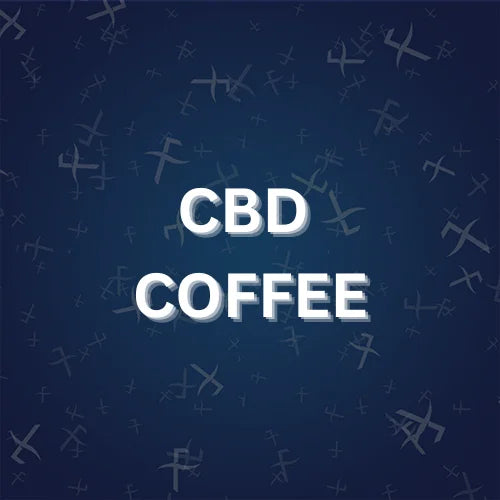


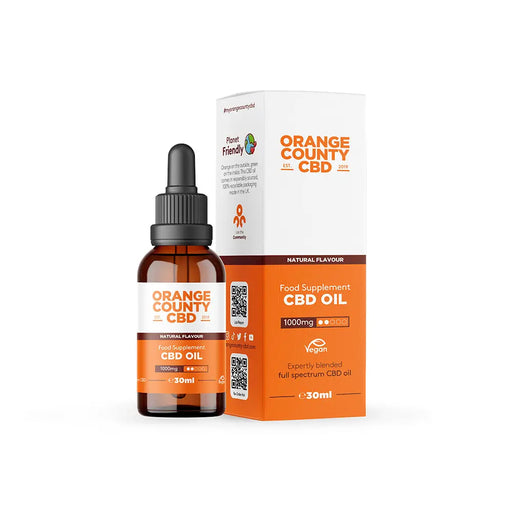
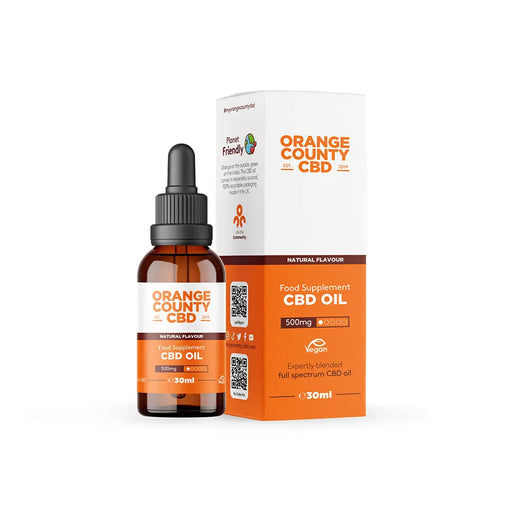
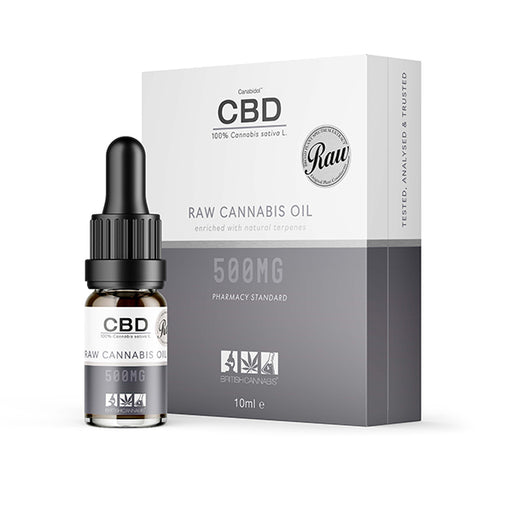
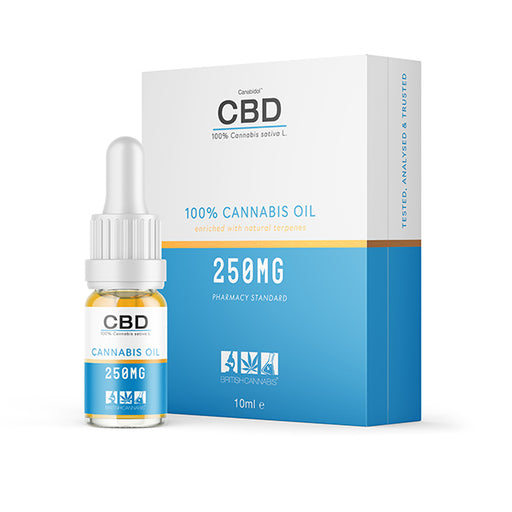


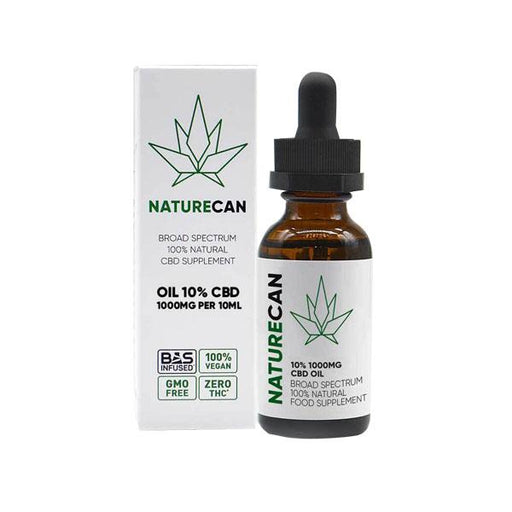
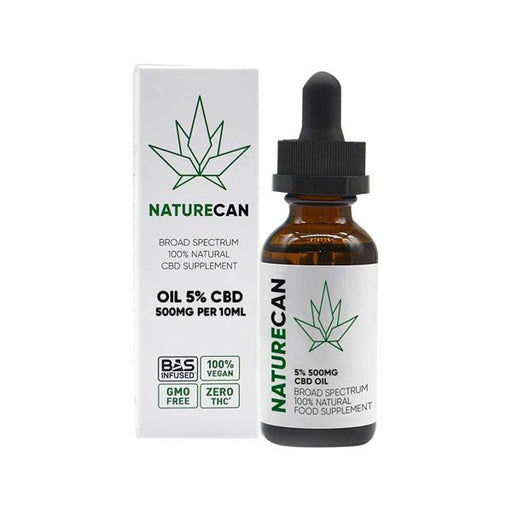


Leave a comment